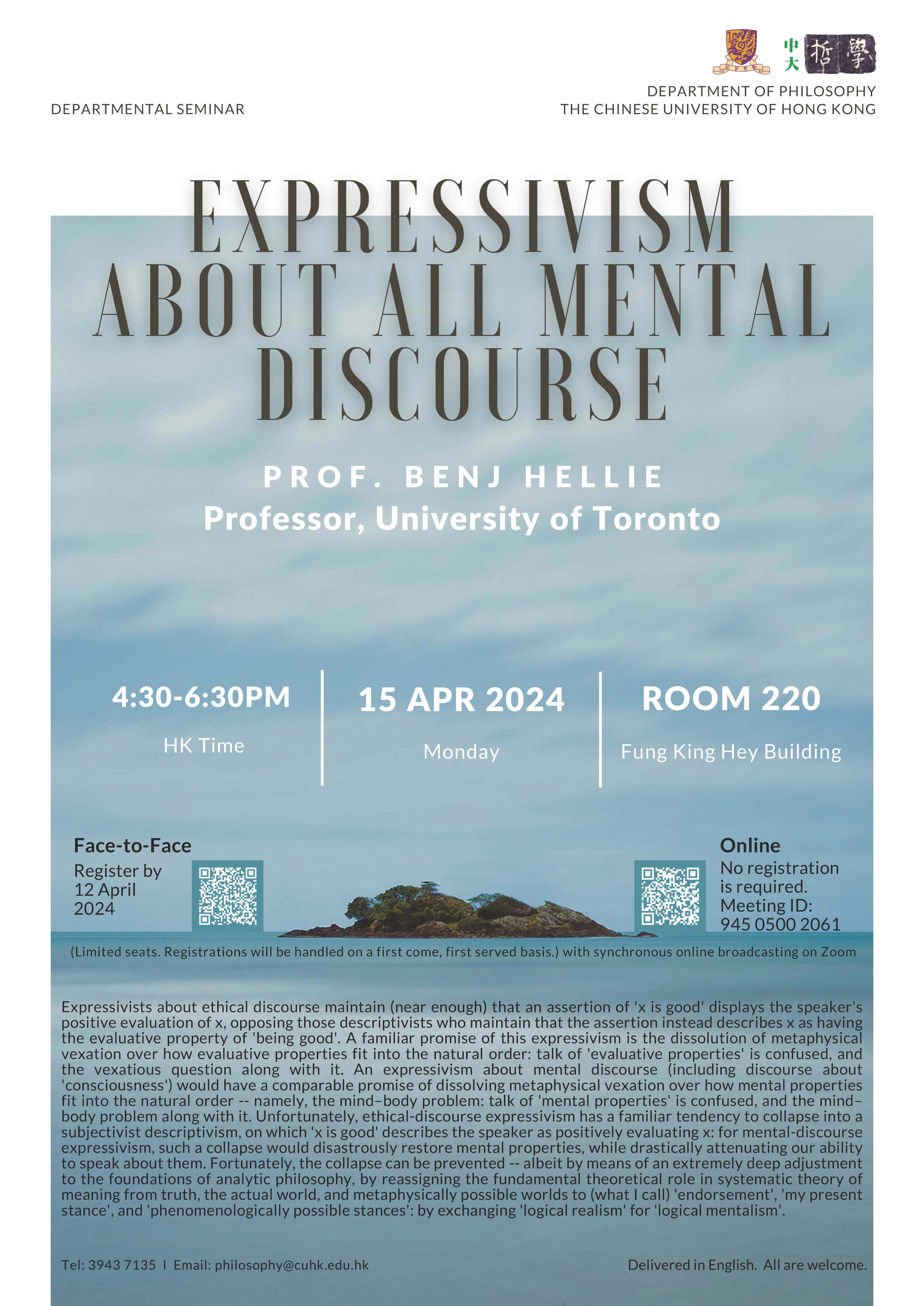Expressivism about all mental discourse (Departmental Seminar)

Prof. Benj Hellie |
|
4:30pm-6:30pm HK Time |
|
Room 220, Fung King Hey Building with synchronous online broadcasting on Zoom |
Joining the Seminar face-to-face:
Limited seats for face-to-face seminar. Registrations will be handled on a first come, first served basis.
Register by 12 April 2024: https://cloud.itsc.cuhk.edu.hk/webform/view.php?id=13686629
Joining the Seminar online:
No registration is required.
Link: https://cuhk.zoom.us/j/94505002061
Meeting ID: 945 0500 2061
Tel: 3943 7135
Email: philosophy@cuhk.edu.hk
Abstract:
Expressivists about ethical discourse maintain (near enough) that an assertion of ‘x is good’ displays the speaker’s positive evaluation of x, opposing those descriptivists who maintain that the assertion instead describes x as having the evaluative property of ‘being good’. A familiar promise of this expressivism is the dissolution of metaphysical vexation over how evaluative properties fit into the natural order: talk of ‘evaluative properties’ is confused, and the vexatious question along with it. An expressivism about mental discourse (including discourse about ‘consciousness’) would have a comparable promise of dissolving metaphysical vexation over how mental properties fit into the natural order — namely, the mind–body problem: talk of ‘mental properties’ is confused, and the mind–body problem along with it. Unfortunately, ethical-discourse expressivism has a familiar tendency to collapse into a subjectivist descriptivism, on which ‘x is good’ describes the speaker as positively evaluating x: for mental-discourse expressivism, such a collapse would disastrously restore mental properties, while drastically attenuating our ability to speak about them. Fortunately, the collapse can be prevented — albeit by means of an extremely deep adjustment to the foundations of analytic philosophy, by reassigning the fundamental theoretical role in systematic theory of meaning from truth, the actual world, and metaphysically possible worlds to (what I call) ‘endorsement’, ‘my present stance’, and ‘phenomenologically possible stances’: by exchanging ‘logical realism’ for ‘logical mentalism’.
Delivered in English.
All are welcome.




